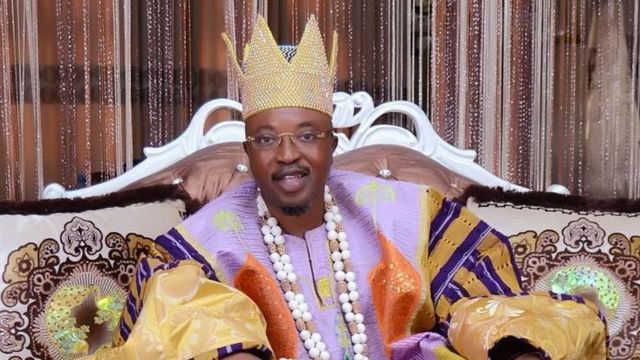The recent burial of the late Awujale of Ijebuland, Oba Sikiru Adetona, has ignited a significant discourse on the traditional burial rites of Yoruba monarchs. The Oluwo of Iwoland, Oba Abdulrosheed Akanbi, has hailed the Awujale’s burial as a landmark victory for the Yoruba traditional institution, marking a crucial step towards restoring its sanctity and dignity. The Oluwo’s commendation stems from the fact that the Awujale’s burial deviated from certain age-long practices, particularly the mutilation of the royal corpse, a tradition he considers demeaning and incongruous with the reverence due to a departed monarch. This departure from tradition, according to the Oluwo, sets a precedent for future royal burials, ushering in a new era of respect and honour for departed Yoruba kings.
The Oluwo emphasized the importance of honouring kings, not just during their reign but also in death. He views kings as servants of their people, individuals who have dedicated their lives to the welfare of their subjects. He believes that the honour bestowed upon them during their lifetime should extend beyond their demise, advocating for respectful burial rites that reflect their esteemed position. The traditional practices involving mutilation, he argues, are not only disrespectful but also a form of spiritual and physical oppression, practices unbefitting the honour and dignity of a deceased monarch. The Awujale’s burial, devoid of such practices, is therefore seen as a liberation from these oppressive traditions, a triumph for the Yoruba race and a testament to the evolving understanding of royal funerals.
Central to the Oluwo’s argument is the concept of autonomy and respect for the wishes of the deceased and their families. He firmly believes that the burial process should be dictated by the desires of the deceased king or their family, not by the dictates of secret societies or traditional customs that may contradict these wishes. The involvement of secret societies, such as the Ogboni or Osugbo, in royal burials should be optional, contingent upon the consent of the royal family. The Oluwo’s stance challenges the long-held sway these societies have held over royal burials, advocating for a shift in power dynamics that prioritizes the autonomy of the royal family in making decisions regarding the final rites of their departed monarch.
The Oluwo’s own experience in reforming burial practices in Iwo further underscores his commitment to this cause. Upon his ascension to the throne ten years ago, he implemented reforms that distanced the Iwo monarchy from the influence of these secret societies. He maintains that these groups, specifically the Ogbonis and Osugbos, hold no legitimate authority over the Yoruba monarchy, and any attempts to exert control should be resisted. This firm stance reflects his determination to safeguard the autonomy of the Iwo throne and to ensure that future royal burials are conducted with dignity and respect, free from the dictates of external forces.
The Oluwo extended his commendation to Ogun State Governor, Dapo Abiodun, and the Attorney-General, Oluwasina Ogungbade, for their instrumental roles in ensuring the Awujale’s burial was conducted with honour and dignity. He lauded them as true custodians of Yoruba heritage, recognizing their commitment to preserving the sanctity of the traditional institution. Their actions, in the Oluwo’s view, demonstrate a profound understanding of the evolving landscape of Yoruba traditions and a willingness to embrace change while upholding the core values of respect and honour. This collaborative effort between the traditional institution and the state government signifies a positive step towards modernizing traditional practices while respecting the cultural heritage of the Yoruba people.
The Oluwo’s strong pronouncements on the Awujale’s burial serve as a clarion call for a broader reflection on traditional practices surrounding royal funerals within the Yoruba culture. He advocates for a shift away from practices that he perceives as demeaning and oppressive, towards a more respectful and dignified approach that honours the memory of departed monarchs. His vision for royal burials emphasizes autonomy, respect for the wishes of the deceased and their families, and a departure from the rigid dictates of secret societies. This perspective not only challenges existing norms but also encourages a dialogue on how tradition can evolve to reflect contemporary values while preserving the essence of cultural heritage. His concluding remark, suggesting that towns willing to have their kings butchered after death should appoint an herbalist or Ogboni as their king, underscores the depth of his conviction and his unwavering commitment to reforming these practices. This bold statement serves as a powerful provocation, urging a critical examination of tradition and a move towards more humane and respectful burial rites for Yoruba monarchs.


